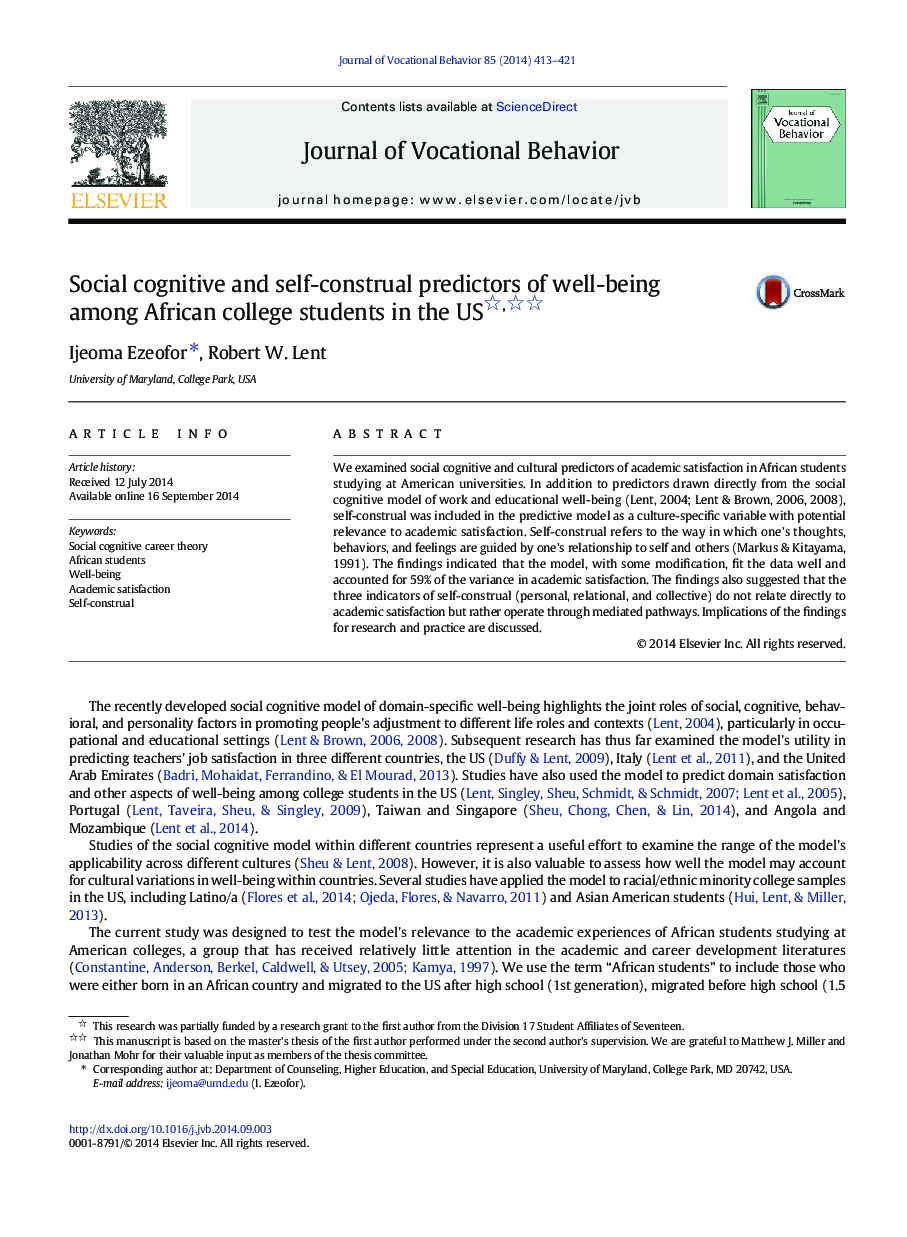| کد مقاله | کد نشریه | سال انتشار | مقاله انگلیسی | نسخه تمام متن |
|---|---|---|---|---|
| 886854 | 913146 | 2014 | 9 صفحه PDF | دانلود رایگان |
• We conducted path analytic tests of SCCT well-being model in African students in the US.
• We tested three dimensions of self-construal within the model.
• SCCT model fit the data well and accounted for 59% variance in academic satisfaction.
• Self-construal indirectly predicted academic satisfaction via SCCT predictors.
We examined social cognitive and cultural predictors of academic satisfaction in African students studying at American universities. In addition to predictors drawn directly from the social cognitive model of work and educational well-being (Lent, 2004; Lent & Brown, 2006, 2008), self-construal was included in the predictive model as a culture-specific variable with potential relevance to academic satisfaction. Self-construal refers to the way in which one's thoughts, behaviors, and feelings are guided by one's relationship to self and others (Markus & Kitayama, 1991). The findings indicated that the model, with some modification, fit the data well and accounted for 59% of the variance in academic satisfaction. The findings also suggested that the three indicators of self-construal (personal, relational, and collective) do not relate directly to academic satisfaction but rather operate through mediated pathways. Implications of the findings for research and practice are discussed.
Journal: Journal of Vocational Behavior - Volume 85, Issue 3, December 2014, Pages 413–421
